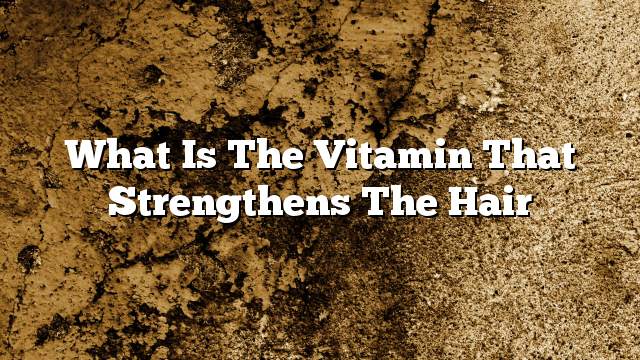Health of hair and food
People often wonder what they can do to get strong and beautiful hair, so there are many who are looking for the magic recipes and mixes that reach them. They also wonder about the best vitamins or vitamins they can take to get positive results reflected on their hair, To be a surprise to them is that the best thing to do for the health of hair is to adopt a balanced health diet, so this article aims to talk about the role of diet, specifically vitamins, in the health and strength of hair.
Healthy hair
Healthy hair is medically known as hair that grows appropriately from all hair follicles, without being easy to break. It is tied to a healthy scalp. It is also the hair that grows in length and density as it should be, keeping its shine, vitality, ease of movement and organization. A healthy diet gives all the nutrients needed to get healthy hair with this definition.
Healthy diet for healthy hair
The hair needs a healthy and balanced diet that gives all the nutrients the body needs in general, which provides the daily needs of vitamins, minerals, proteins and other nutrients, and if a person does not get a healthy diet can see the impact in his hair, The role of some nutrients in hair health:
Protein
The hair is mostly made up of protein, so it needs to grow. If you do not get enough protein in your diet, a large number of hairs will enter the resting phase (a phase of the hair growth cycle lasting three months and then the hair will fall off) Hair loss in larger quantities than normal.
Metal
Hair needs iron, selenium, copper, magnesium and zinc, where these minerals enter the processes of the absorption of proteins that make up hair, and iron deficiency can cause hair fall.
Vitamins
Many vitamins play an important role in the health of hair, all vitamins are important to him, vitamin B complex, vitamin E, and some important vitamins for hair and its sources of food:
- Vitamin D : Some scientific studies suggest a role for vitamin D in the hair growth cycle, although evidence is still unclear, and this vitamin can be obtained by exposure to the sun for sufficient periods, which is the main source of it, as can be obtained from Some foods (but not usually enough), such as fortified milk, fortified juice, fortified grains, and some fatty fish such as salmon and sardines, are considered to be the richest food sources.
- Vitamin B6 Which can be obtained from many foods, such as meat, poultry, fish, potatoes, carrots, broccoli, tomato juice and some non-acidic fruits such as melons, bananas, plum juice, pulses, liver, And soy products.
- Vitamin B12 : Which is found in animal foods only, such as meat, poultry, fish, milk, cheese and eggs, as well as fortified soy milk.
- Folic acid : Which is found in vegetables and legumes, especially green leafy vegetables, in addition to supported grain products such as bread, flour flour, orange juice, whole wheat bread, liver and seeds.
- Biotin : Which include symptoms of hair loss, and can be obtained from the meat of internal organs, egg yolks, soybeans, fish and whole grains.
- Vitamin E : Which is mostly found in vegetable oils, wheat germ oil is characterized by its high content of this vitamin, which is easy to damage heat and oxidation.
Essential fatty acids
Essential fatty acids, especially omega-3, play an important role in hair health, and are abundant in fatty fish such as salmon, tuna, etc., in flaxseed oil, almonds and walnuts.
- Note It should be noted that eating the right foods to maintain the health of hair may not prevent the fall, as the fall can result from many reasons not related to nutrition and vitamins, such as thyroid diseases, anemia, and some autoimmune diseases, and imbalance in some hormones , And genes.
** This article is not a medical reference.
